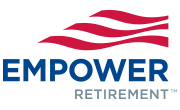Participant education, fiduciary knowledge critical to plan distribution success
New white paper provides guidance for plan sponsors to help retirees make sound decisions
GREENWOOD VILLAGE, Colo., November 16, 2015 — Plan sponsors must understand both governmental regulations and their fiduciary responsibilities in order to help participants leaving employment or retiring who need to make decisions about their retirement plans, according to a new white paper, Empowering Participants – Plan Distributions and the Plan Sponsor, being published this week.
Empower Retirement recently partnered with attorney Fred Reish of Drinker, Biddle & Reath, LLP to describe the key issues that participants face about retirement options and regulatory activity related to educating participants on various options with the goal of helping plan sponsors as they approach their fiduciary responsibilities.
“At Empower we believe that plan sponsors succeed when their participants succeed. Part of that mission includes providing the expertise that’s needed on all facets of retirement planning,” said Edmund F. Murphy III, president of Empower. “We’re offering plan sponsors the help they need to understand their responsibilities when participants are ready to take action on where, when or if they should move their savings.”
Carol A. Sullivan, human resources manager for Swiss International Airlines, said, “Helping our participants make the right decisions about their retirement plan is a key priority. Getting this kind of guidance has been really valuable. It’s very reassuring to know that we’re making all the right moves to help our participants work toward a secure retirement.”
“This kind of insight is exactly what plan sponsors need and gives us a leg up in helping them think about their responsibilities,” said Carl Valimont, president of Denali Wealth Management. “As regulations are updated and fiduciary responsibilities change, plan sponsors need to know where the risks and opportunities are.”
The general concern among regulators is that participants do not always understand and are not consistently receiving clear, complete and unbiased information about their distribution alternatives when they leave their jobs. Generally, participants have four choices:
- Leave their money in the employer’s plan.
- Transfer their money to a successor employer’s plan.
- Roll their savings into an IRA.
- Take a taxable distribution.
The paper, which is available online at www.myerira.com, highlights the importance of clear and comprehensive information and guides against providing biased information. Included in the paper is a discussion of regulatory goals including Financial Industry Regulatory Authority rules governing the development of robust policies and supervisory controls for provider call centers and representatives; Government Accountability Office warnings about overly vague or technical information and aggressive IRA marketing; and Department of Labor concerns about distribution and rollover information, among other topics.
ERISA, the federal law that governs most private sector retirement plans, imposes duties of prudence and loyalty on plan fiduciaries, according to the paper. Under ERISA, plan sponsors have a fiduciary duty to prudently select and monitor their plans’ service providers and the services they offer. The paper spells out plan sponsors’ fiduciary responsibilities, noting that best practices should:
- Ensure that their providers are giving participants the information they need to make informed decisions.
- Evaluate their provider’s policies and procedures for assisting participants with these decisions.
- Be reluctant to dictate participants’ decisions or prevent their providers from furnishing valuable information to participants.
- Review written educational or IRA marketing materials that providers give to the participants.
- Take steps to understand their providers’ practices — specifically what participants are being told when they call to discuss their options.
The authors of the paper explain that employers who sponsor non-ERISA plans, such as governmental entities with 401(a), 403(b) and 457(b) plans, as well as church plan sponsors, are also subject to fiduciary standards under state law instead of ERISA. Non-ERISA fiduciaries also must be prudent in their decisions and oversee their vendors and providers. Many states have enacted specific statutes that impose requirements of fiduciary conduct for governmental plans.
The paper also includes a sponsored review of Empower’s call center procedures, performed by Drinker, Biddle & Reath, LLP. The examination considered call center training and supervisory procedures. The paper contains an in-depth look at the assessment of those functions.
Media Contact:
Stephen Gawlik – Office: 303-737-0899; Cell: 617-417-4408; [email protected]



